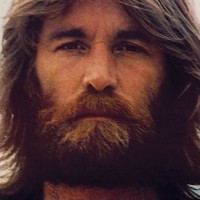The dreamy, melodic rock duo Blackfield comes roaring back from a fairly brief hiatus to deliver its fifth studio document that signals a new commitment, a new vigor for a band that was all but left for dead three years ago. Blackfield albums tend to be assessed by the level of Steven Wilson’s involvement with them, which would automatically qualify Blackfield V (February 17, 2017 USA/Canada, February 10, 2017 elsewhere via Kscope Music) as the best Blackfield since their high water mark from ’07, Blackfield II.
Yes, this is a ‘return to form’ kind of album that it’s already being touted to be and not merely because Wilson was more invested in it, but that certainly didn’t hurt. The reigning neo-prog king and former Porcupine Tree linchpin had always sought to leave breathing space for his partner in this venture, Israeli pop star Aviv Geffen, who had been handed control of the artistic direction of the band for the last couple of albums as Wilson put his energies into sweeping, first-rate rock epics like The Raven That Refused To Sing (And Other Stories) and generally lesser but still quality releases like the odd ‘n’ ends 4 ½. In the meantime, Geffen was left largely in charge for Blackfield’s less-regarded Welcome To My DNA and Blackfield IV.
After Wilson announced his official departure in early 2014 followed by a short ‘thank you and farewell tour’, Geffen went to work on the next album, bringing in rock producer legend Alan Parsons to oversee some of the sessions. By mid-2015, Wilson was also involved in the sessions and a year later, after eighteen months of studio time in London and Tel Aviv, a new album was completed.
The most visible sign of that aforementioned new commitment is the album cover itself, which brings back the old timey glass bottle of the first album’s cover, this time set against the background of the ocean, which is the loose theme of this album (“Life is an ocean, you gotta swim” they sing). Calling in Parsons to produce a triplet of tracks is another indication as well that they mean business.
Wilson’s involvement, actually, is less conspicuous than II; he wrote only “44 to 48” and shares credit with Geffen for “Life Is An Ocean,” mixed about half the tracks and produced four. He contributes guitars and keys, but he’s always had a hand in the instrumentation. Though now he’s re-assumed a role equal to that with Geffen as a lead vocalist, and they share that task for three of the thirteen songs, including the driving rocker “Family Man” that after a short string orchestra instrumental, launches the record in a seemingly triumphant fashion.
Geffen has grown much as a composer since Blackfield was started but his fondness for Goth moods hadn’t at all diminished. Take, for instance, “Lonely Soul,” where his whimper “I’m a lonely soul” is looped over and over to a programmed drum track in a somewhat surprising nod to hip-hop. But its repetitive, downer lyrics (a few more lines, “everything is broken/everything is chaos/everything in me” is sung flawlessly by Alex Moshe) manages to draw in the listener, not to mention its contagious groove. His notorious putdowns continue, too, such as “It’s too late, so why pray now/You cynical bastard?”, sung by Wilson on Geffen’s gossamer “How Was Your Ride?”
Moreover, he lends a couple of downright heartbreaking melodies on the percussion-less ballads “Sorrys” and “October,” the latter being solid proof how far Wilson has come as a lead vocalist; he can belt ’em out like a real crooner, now. But it’s not all dark: Geffen lends his wavering but insistent voice to the reassuring “We’ll Never Be Apart,” where Wilson’s rock guitar provides the right punch here (and elsewhere).
Parsons helmed the boards for “How Was Your Ride?”, “We’ll Never Be Apart” and “The Jackal,” which are all marked by those heavenly swells of rich chords particularly in the background vocals and the string arrangements. His limited presence doesn’t make the rest of the album pale in comparison because Wilson — a Pink Floyd acolyte and master producer himself — and Geffen adhered to high standards on their turns as well.
The lush “From 44 to 48” wraps up the album with Wilson’s semi-autobiographical look back on life, a theme he’s visited before. Like so many of his songs, it sounds so familiar, it probably should have been written a long time ago.
Keeping the songs down to tidy, radio-ready lengths might frustrate some accustomed to hearing Steven Wilson endlessly create layered, multi-sectioned, fully-realized deluxe tracks, but that’s never been part of the game for his collaborations with Aviv Geffen. The Blackfield hallmarks of meticulously timeless production, enduring melodies and quality instrumentation are here stronger than probably ever for their fifth album, and those three attributes together are nearly impossible to find in any other rock band today. That’s why Blackfield V is so easy to accept on its own terms.



